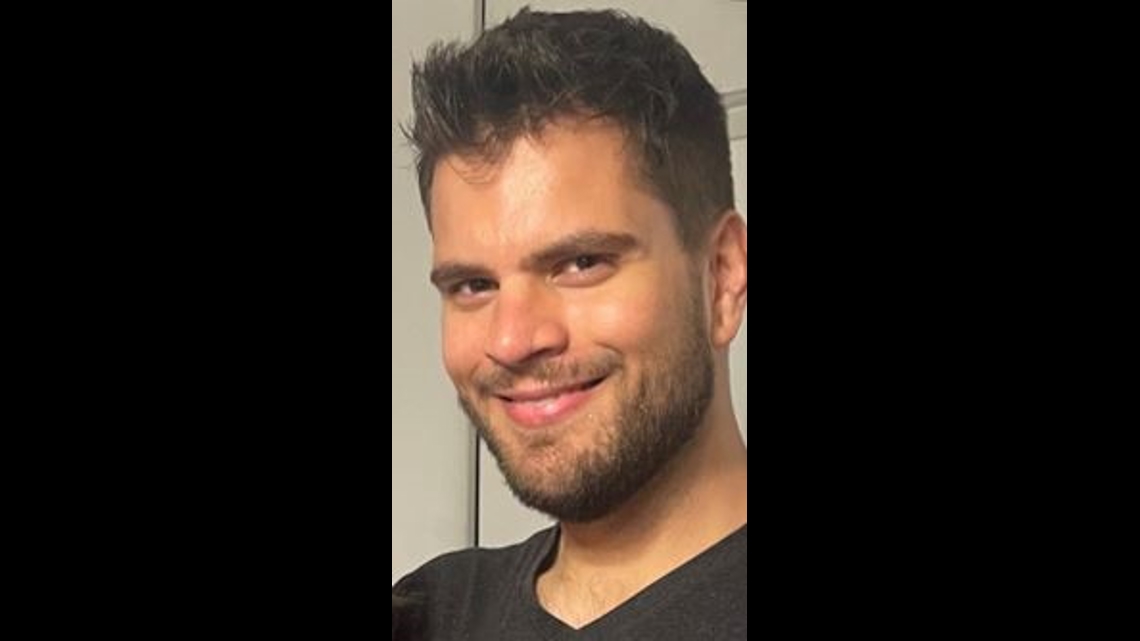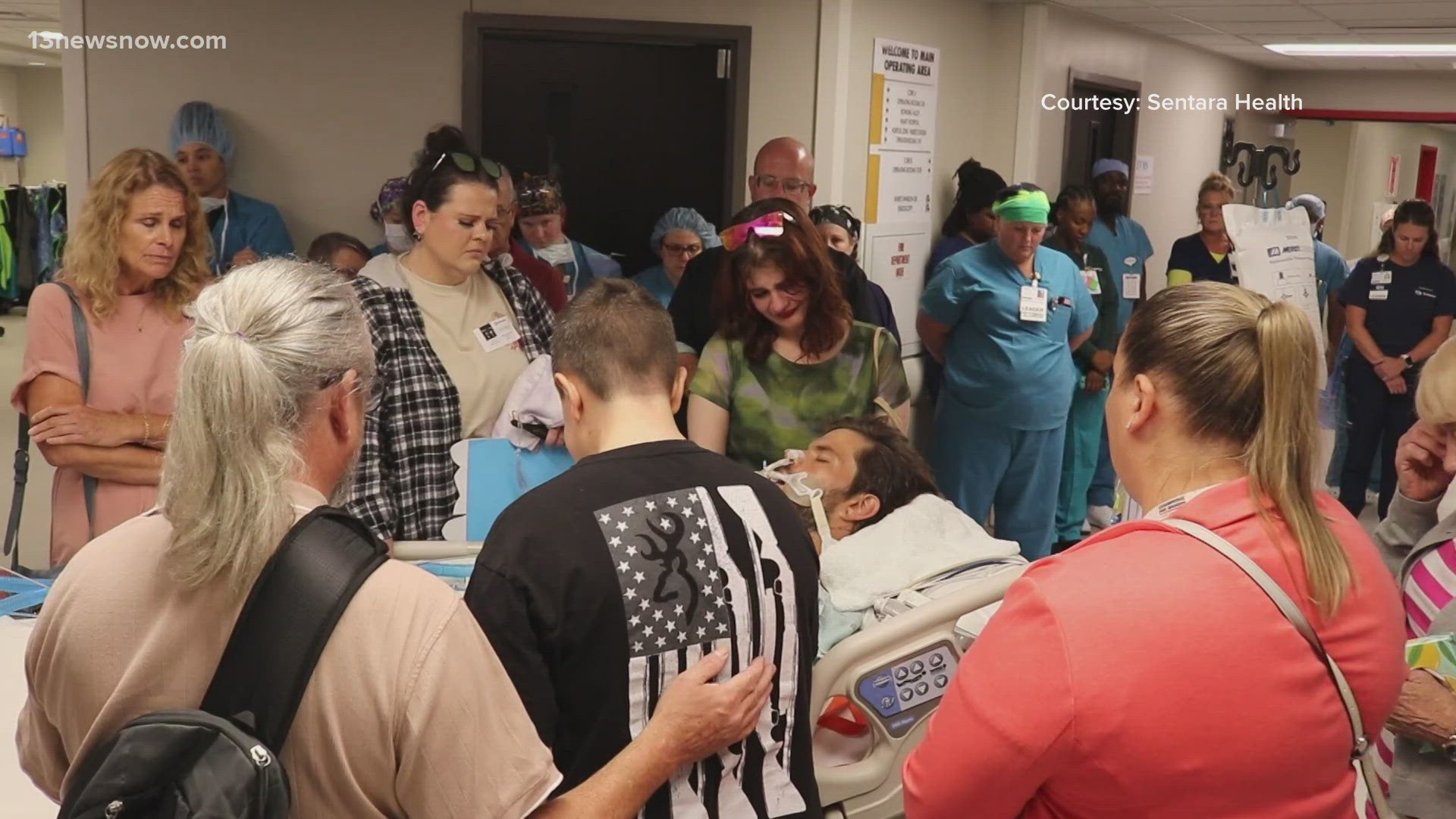NORFOLK, Va. — A Portsmouth man will be remembered as a hero.
On July 11, Zack Pate, 29, was taken off life support by his family, and then his heart was donated.
But, Pate isn't the average organ donor.
A decade ago, he was diagnosed with HIV.
And years ago, it would not have been possible for someone with HIV to donate their organs.


Yet in 2013, the HOPE (HIV Organ Policy Equity) Act was signed, allowing donors with well-managed HIV, like Pate, to give their organs to recipients with HIV.
"This is very special for the HIV community," said Donya Rymaruk, a transplant coordinator with LifeNet Health.
Pate became just the third person in the U.S. with HIV to ever donate their heart.
The first HIV-positive to HIV-positive heart transplant didn't happen until 2022.
"The fact that we're able to do this now, and this is the third heart is just miraculous," Rymaruk said, "and it's just so special."
Earlier in July, doctors and nurses at Sentara Norfolk General Hospital lined the hallways for an "Honor Walk" for Pate.
His care team rolled his bed from the ICU to the operating room for organ recovery.
As Zack's family said their final goodbyes, a chaplain said a prayer.
"We thank you that some of Zack will live on physically to bless others just as his precious memory will live on in the hearts of minds of those he leaves behind," prayed Chaplain Wendy Ward.
A common misconception is that people in the LGBTQ+ community cannot donate organs. Nevertheless, anyone can sign up to become an organ donor and anyone can benefit from a life-saving transplant.

